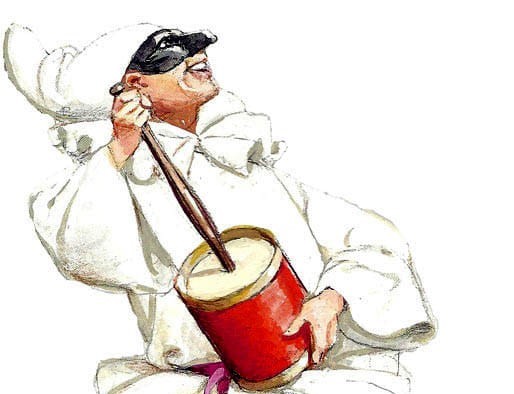Pulcinella, an enigmatic figure of Italian folklore, is shrouded in mystery regarding his exact origins. While some speculate that his name derives from “pulcino” (Italian for chick), suggesting a possible avian connection, scholars continue to debate his true lineage.
As a prominent character in Italian Commedia of the art, Pulcinella is renowned for his vibrant persona and sharp wit. Clad in his signature attire of snug white trousers, a long, billowy jacket, a white shirt, and a pointed hat, he embodies the essence of theatrical brilliance.
Emerging as a symbol synonymous with the vivacity, humor, and cunning of the Neapolitan people, Pulcinella has become an emblematic figure of Naples, often affectionately referred to as “Pulcinella napoletano.”
Pulcinella’s character is uniquely multifaceted, oscillating between the roles of foolish buffoon and cunning strategist. His ability to outsmart adversaries with his quick wit and spirited demeanor endears him to audiences across generations.
Throughout history, Pulcinella has served as muse to countless artists, including the renowned Italian composer Gioachino Rossini, who immortalized him in the comedic opera “La scala di seta.”
Beyond Italy’s borders, Pulcinella’s influence extends globally, with adaptations in various cultures. Known as “Polichinelle” in French and “Punch” in English, he remains a beloved figure in international folklore and entertainment.
Dedicated festivals in cities like Naples and Acerra pay homage to Pulcinella’s enduring legacy, featuring parades, theatrical performances, and cultural events celebrating this iconic figure of Italian popular tradition.

























